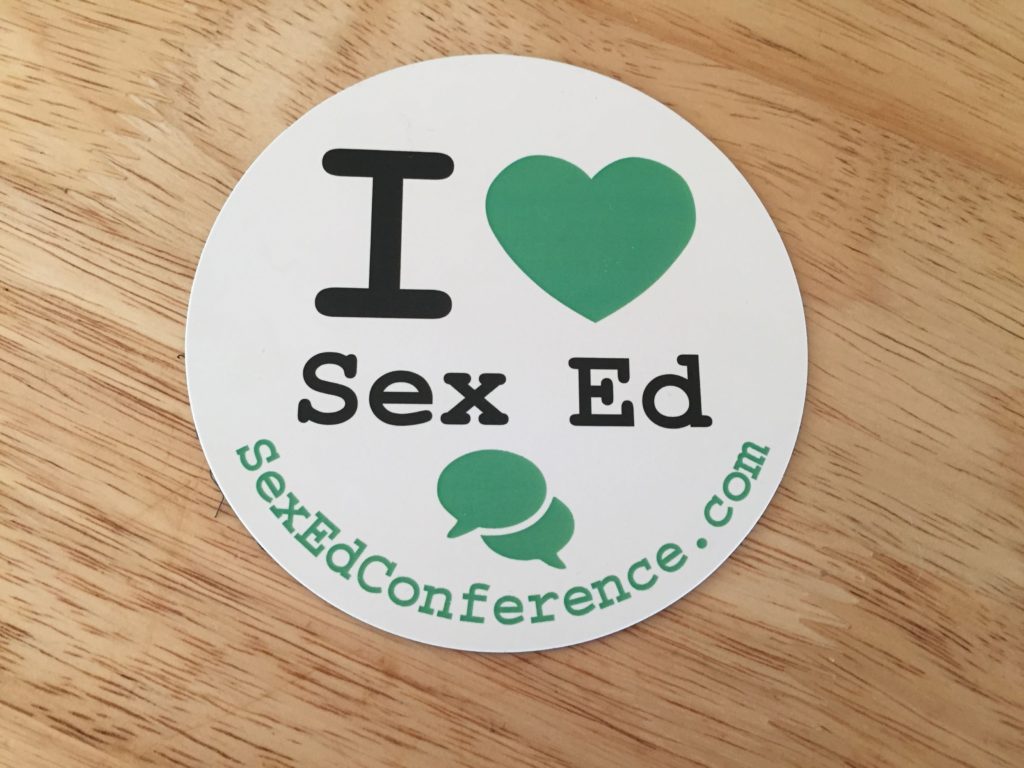Earlier this month, I attended a four-day sex educator conference in Atlantic City, New Jersey. While there, I was gathering information for three different assignments but, because I was curious and because it felt particularly relevant to my interests, I also attended a workshop on the sexualization of sex educators.
It was held in a room large enough for over 200 people, with a wall of windows looking out over the Atlantic City beach. As the rows of chairs began to fill up, I looked around at my fellow attendees: educators, yes, but also clinicians and program coordinators and me, the lone writer.
The workshop began and the co-facilitators immediately got attendees involved, asking them to shout out the types of people by whom they’d been sexualized, so they could write down all of the answers on a giant easel pad at the front of the room.
“My students!” shouted one woman, and it was written down in bright blue marker on the pad of paper.
“Prospective partners!” shouted another and this, too, was added as we all nodded our heads in recognition.
“And present partners,” pointed out another.
“Mmmhmm…” I heard from somewhere else in the room.
“Colleagues,” came a voice from the back of the room, and we all whipped our heads around. The woman writing down all of our answers struggled to keep up.
“Sexual health colleagues or others?” asked the other facilitator.
“Both!” shouted someone else, and they were both added to the paper.
“Family members,” said someone else, and I swallowed hard. I could feel a pressure building behind my eyeballs. I felt as if I hadn’t stopped nodding since we’d started.
“Complete strangers,” said another, and a number of incidents from the past 15 years flashed through my mind.
“Everyone,” said someone else, and the woman at the front of the room added it to the list, writing the word in all capital letters. As she wrote down the E, the V, the next E, and onward, each letter was like a fist squeezing my heart until I could feel my heartbeat throbbing in my throat.
I had felt like an outsider at the conference up until then, not being a certified sexuality professional myself. After all, didn’t my work just piggyback off the brilliant work of others?
In that moment, however, I belonged. I had never before felt so fully understood.
🍆
Yesterday, I wrote up a recap of the conference for the Center for Sex Education. A local Planned Parenthood affiliate, they’re the organization behind the conference, and I happen to do volunteer blogging and freelance copyediting for them.
My recap gives just a small taste of my conference experience, which was exhausting but also fascinating and enlivening in its energy around sex ed advocacy. The writing conferences I go to give me the chance to bitch about writing with other writers, a community that can be notoriously isolated as they huddle over their laptops and tablets in their lonely home offices. But the National Sex Ed Conference gave me the chance to learn more about a particular field about which I’m becoming more and more passionate.
And with rock star educators like Al Vernacchio and Emily Nagoski in attendance, in addition to activists like Jaclyn Friedman and Everyday Feminism’s Melissa Fabello, I was fangirling my head off.
And then there was that sense of belonging, something I didn’t expect to feel when I was there.
During that workshop on sexualization, we broke up into groups to discuss how we had been sexualized over the years. One woman described how a stranger—upon learning about this woman’s job—had creepily offered to be her lab partner in any sex-related experiments. Which led me to share the multiple times men had told me that hearing about my work turned them on. Which led to disclosure after disclosure from the women around us, each more horrifying—yet also familiar—than the last.
As I left that workshop about an hour later, I felt buoyant. Which might sound weird, but the experience as a whole had been so cathartic.
And not only that but, in hearing about the commonality of my worst experiences, I knew I was doing the work I was supposed to be doing.
If you’re also looking for ways in which to use your writing as a form of advocacy, registration is still open for my Writing as Advocacy class, starting next month. If you’re in North Jersey, I’d love to see you there.

